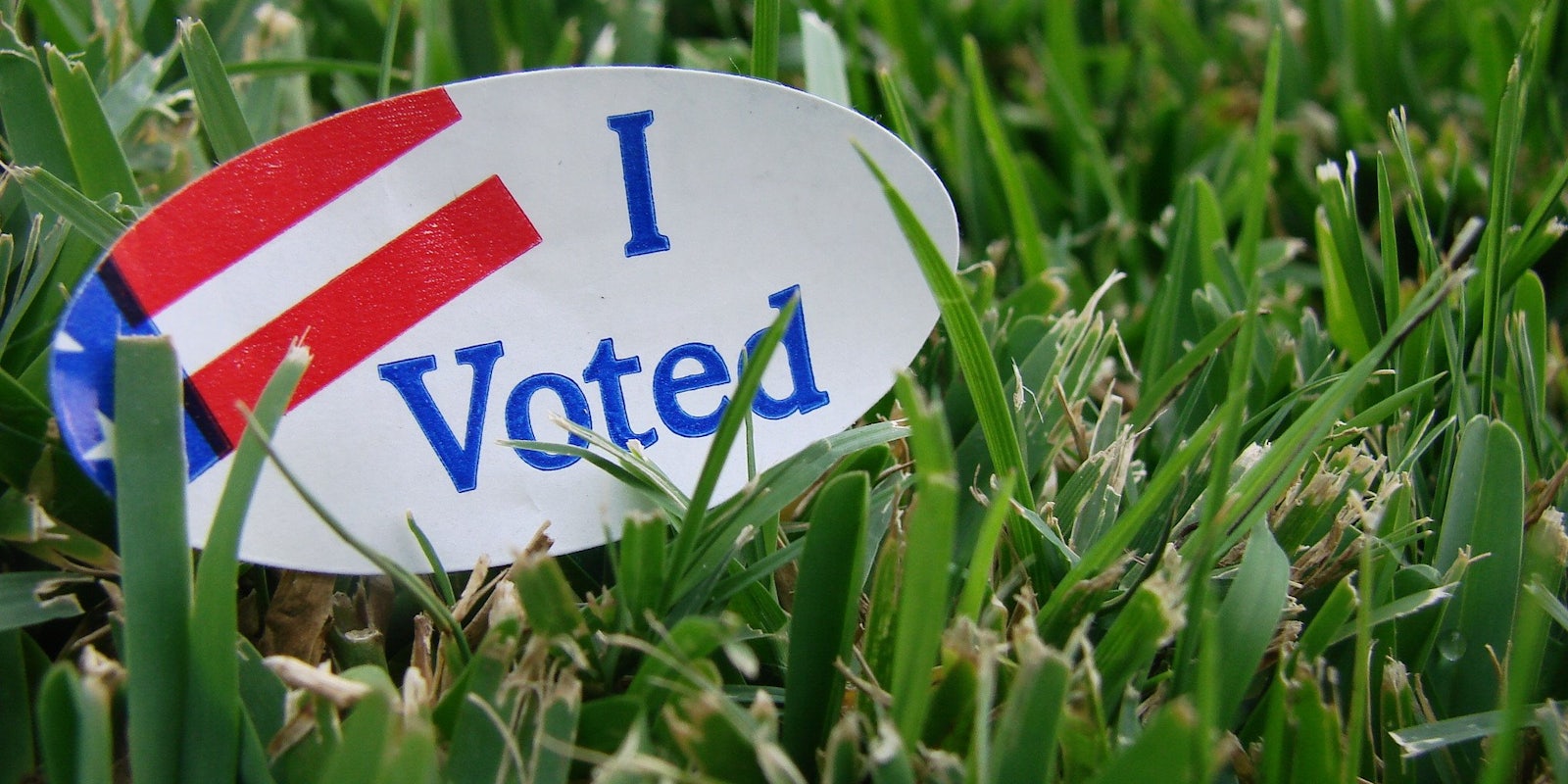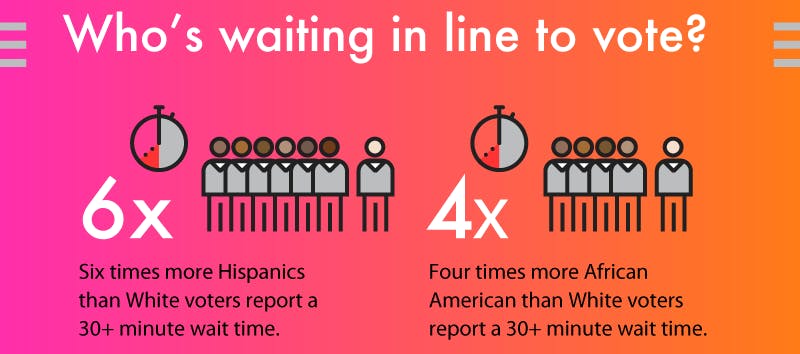Recently, President Barack Obama was at the SXSW tech festival urging us to use tech to make it easier to serve the USA by voting, while protecting the integrity of the process.
I feel that voting is a fundamental act of patriotism, a pronouncement of your values. It’s an assertive, strong way to stand up against privilege, racism, and hatred.
When it comes down to it, voting’s really a way to stand up for the rights of others, to say that others should be treated the way you want to be treated.
A lot of people died to preserve that right. The thing is, when you commit to vote you’re serving the country, seriously, and doing one of the best things you can do to thank a vet. (Don’t forget to thank their families, too.)
When it comes down to it, voting’s really a way to stand up for the rights of others, to say that others should be treated the way you want to be treated.
Voting is the backbone of a free country, of a democracy. It works best, per Thomas Jefferson, when it’s not about picking winners, but it’s a way anyone can stand up for the candidate who best represents your values.
We know that voting’s effective, because bad actors in both major parties have been caught in voter suppression shenanigans. Here’s one example, and another.
Some states now require voter ID cards, which can be really hard to get, thus discriminating against people of color, the poor, the elderly, and others. Consider how hard it is for, say, a single mom working two jobs to take a bus across town to the DMV which may already be closed.
And 50 percent of millennials describe themselves as political independents, and are restricted from voting in 11 states with closed primaries or caucuses. That’s a big deal this year.
My team and I recently commissioned a national poll about Americans’ perceptions of voting, and paired it with some stats from the Brennan Center about how it can be really difficult to vote in America, and what we can do to fix it.
Here are a couple of the stats we uncovered that’ll impact the upcoming election:
- 21 states have new voting restrictions since the 2010 election.
- 69 percent of Americans say they don’t support voter ID laws and closing DMV offices early.
- 11 states have closed primaries or caucuses. This means that only voters who are registered as Republicans or Democrats prior to the primary date can participate in the nomination process for those parties’ candidates.
- 50 percent of millennials describe themselves as political independents, which makes them unable to vote in those 11 states’ primaries or caucuses.
- Six times more Hispanic than white voters report a 30+ minute wait time when in line to vote.
- Four times more African American that white voters report a 30+ minute wait time.
- 60 percent of Americans polled support automatically and securely registering eligible citizens to vote when they obtain or renew a driver’s license from the DMV.
- More than half believe that increased participation in voting means a healthy democracy.
Can tech help? Yes. Voting over the Internet is a real possibility, with real challenges, and if done well would be great for American democracy. However, there’re too many political obstacles for that to happen anytime soon.
Tech could much better help enable a low-tech solution: Registration and voting by mail.
Tech could much better help enable a low-tech solution: Registration and voting by mail. That is, social media could be the outreach vehicle to show how easy this would be, providing required forms and related info.
One person gets one vote, and each one matters. If you want to treat people like you want to be treated, time to stand up for each and every one.
Register to vote. And encourage your friends, family, and neighbors to do the same.
Vote.
Craig Newmark is a self-described nerd, Web pioneer, speaker, philanthropist, and advocate of technology for the public good. He is the founder of craigslist. While no longer part of management, Craig continues to work with craigslist as a customer service representative in what he calls a “lightweight” capacity. Today, Craig’s primary focus is craigconnects, which he launched in 2011 to promote and enhance the use of technology and social media to benefit philanthropy and public service. Follow him on Twitter @craignewmark.
Photo via samantha celera/Flickr (CC BY 2.0)



